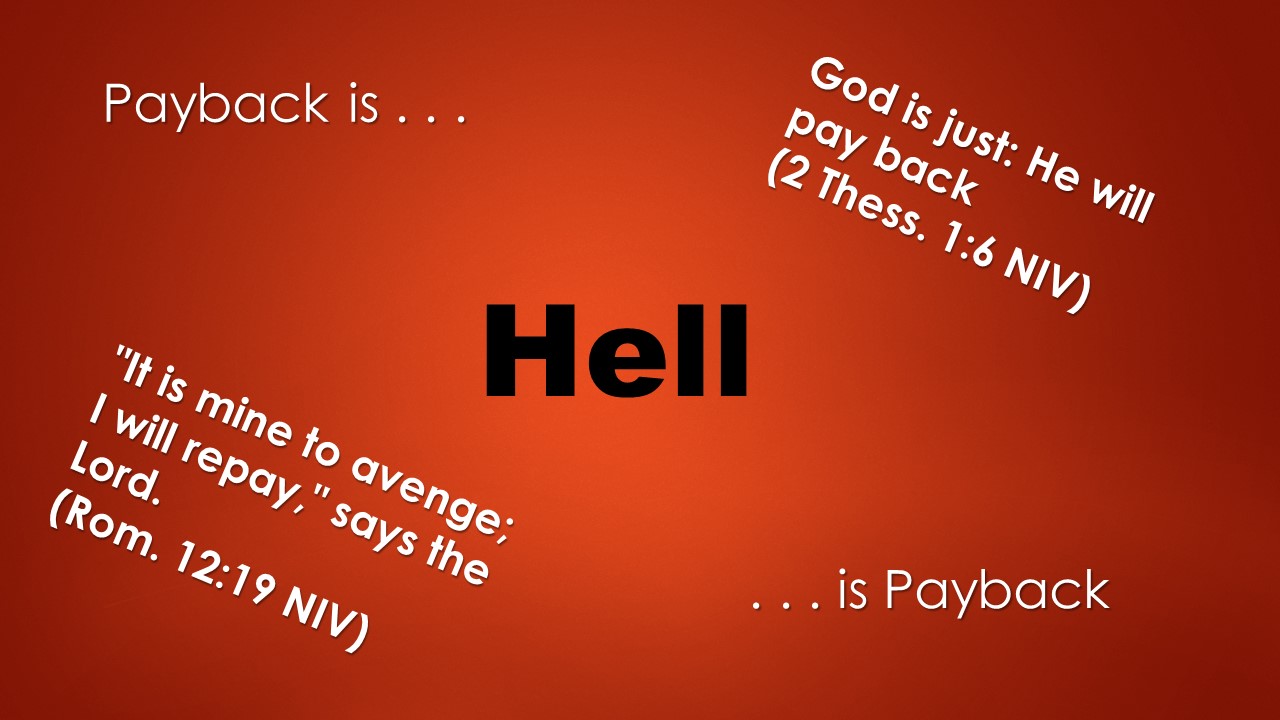- Mar 17, 2015
- 17,340
- 9,285
- Country
- United States
- Gender
- Male
- Faith
- Christian
- Marital Status
- Married
As human beings we are bounded in both time and place. That is to say, we are finite. On the other hand we think of God as completely unbounded. God exists outside of both time and space. God is present everywhere and at all times. That is to say, God is infinite. This is the orthodox theistic understanding of God. To compare the finite to the infinite is beyond our human comprehension. Even to compare a grain of sand to Mount Everest falls far, far, far short. All of this brings up a number of questions in my mind.
The first question being “How is it even possible for a finite creature to offend an infinite God?” Could a grain of sand offend Mount Everest?
The second question being “Even if it were possible for the finite to offend the infinite, would the infinite punishment of a finite creature be just?” I will attempt to craft an analogy. You are in a park enjoying a picnic lunch when you glance down and notice an ant crawling across your sandwich. You are offended. How do you react? You have a number of options. You could ignore the ant. You could brush the ant away. You could move to a different location. You could kill the ant. You could kill the entire ant colony. You could capture the ant and confine it and proceed to torture it for several weeks until it finally dies. That last option is quite inadequate as a comparison to hell because hell is infinite in duration whereas the ant can only be tortured for a finite length of time.
To me the concept of hell flies in the face of any concept of a just and compassionate God. Hell would seem to be an entirely human invention based on a vindictive concept of retributory justice. Perhaps we have the wrong idea of hell. Perhaps we have the wrong idea of justice. Perhaps we have the wrong idea of God. I completely reject the concept of hell as it is traditionally understood in most Christian churches.
Using the fun metaphor of the ant, notice the parallel of how the ant is mortal. An eternal duration of torture is not possible unless it's an immortal ant... (I'm going somewhere with this, don't worry...)
Now, Christ said we can be given eternal life.....
"For God so loved the world that he gave his one and only Son, that whoever believes in him shall not perish but have eternal life."
See? We do not already have it to begin with. Without being given eternal life we will "perish".
His word.
That's why the "second death" is a "death" (not something else like "eternal life"; i.e. the wording is precise and means what it says here)
This is also shown also in Genesis chapter 3 -- that Adam and Even before the fall did not yet have immortality. They did not have it even before the new rules which happened after the fall:
22 And the Lord God said, “The man has now become like one of us, knowing good and evil. He must not be allowed to reach out his hand and take also from the tree of life and eat, and live forever.” <-- !
23 So the Lord God banished him from the Garden of Eden...
So, not having yet eaten of the tree of eternal life, they were not already immortal even from the beginning. Eternal life isn't our already-situation. Instead, it's the ultimate gift. We don't have it at all, until it is given.
(Notice that the "devil and his angels" in contrast, unlike us, do have either immortality of the self/soul or a super long hardy endurance, at least one or the other, already, by their nature, unlike us;
therefore they can suffer longer than us in that 'fire')
Of course, to perish in that fire is indeed an eternal punishment.
Now every reference is fitting together, perfectly. This is how to know when we have a doctrine that can be correct -- it must fit not only certain selected verses alone, but fit together all the different verses from different books.
Last edited:
Upvote
0


